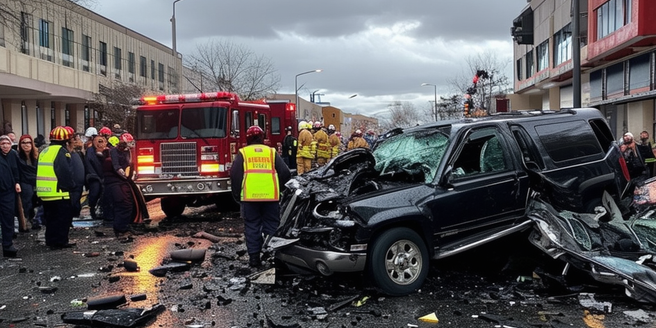
Understanding Head-On Collisions: Causes and Consequences
Head-on collisions occur when two vehicles collide front-end-first. These accidents are often the result of driver error, such as drifting into oncoming traffic, impaired driving, or aggressive maneuvering. Poor visibility and road conditions like sharp curves or inclement weather can also contribute. Due to the force of impact, head-on collisions tend to result in severe injuries or fatalities. Despite advancements in vehicle safety technology, the human factor remains a significant risk. Understanding the causes helps in developing preventive measures and addressing safety improvements on roads. Consequences extend beyond physical injuries, encompassing emotional trauma and financial burdens. Families and communities often are affected by the losses incurred, making it crucial to advocate for better road safety awareness and driving education to mitigate such tragic outcomes.
Determining Liability in Head-On Collision Cases
Determining liability in a head-on collision involves evaluating the circumstances leading to the crash. Police reports, witness statements, and accident reconstruction specialists play critical roles in this process. In many cases, insurance companies also assess the evidence to understand the sequence of events. Typically, liability may lie with the driver who veered into oncoming traffic. Yet, in certain situations, liability could also involve external factors such as poorly maintained roads or malfunctioning vehicle parts. By establishing who failed to uphold their duty of care on the road, either due to negligence or recklessness, affected parties can seek compensation for incurred damages. Legal professionals can provide guidance on navigating the complexities of liability determination to ensure a fair outcome.
Steps to Take Immediately After a Head-On Collision
Immediately after a head-on collision, safety is the priority. First, assess if you or others are injured and call emergency services without delay. It can be helpful to take deep breaths to stay calm and focused in this stressful situation. If able, move to a safe location away from oncoming traffic to prevent further accidents. Share your location with the dispatcher and provide clear details of the scene. It is advisable not to admit fault or provide detailed statements until law enforcement and professional assistance arrive. Documenting the scene with photographs and collecting contact information of witnesses can be beneficial. Contacting your insurance provider and seeking medical evaluation promptly can further support any future claims or legal actions.
Compensation Claims: What Victims Can Expect
Victims of head-on collisions may pursue compensation claims to cover medical expenses, lost wages, pain and suffering, and other damages. Understanding the types of compensation available, such as economic and non-economic damages, helps set realistic expectations. Medical records, proof of income loss, and detailed accounts of emotional and psychological impacts bolster claims. It’s important to seek professional advice to understand the full extent of compensation one may qualify for. It’s crucial for victims to document every aspect of their suffering meticulously. The settlement process can be intricate, often requiring negotiation with insurance companies or legal representation if a satisfactory agreement is not reached. Legal guidance is pivotal in navigating claim proceedings, ensuring victims receive rightful compensation for their losses and recovery.
Why Legal Representation is Crucial in Collision Lawsuits
Legal representation is crucial in collision lawsuits, navigating the intricacies of personal injury law while protecting victim rights. Attorneys offer expertise in collecting evidence, filing necessary legal documentation, and negotiating with insurance companies. They act as advocates, ensuring their clients receive fair compensation for their injuries, damages, and suffering. Often, insurers aim to minimize payouts, making experienced legal guidance essential to counter such strategies. Additionally, attorneys can assess the long-term impact of injuries to accurately value the compensation needed. In addition to this, attorneys can provide reassurance and clarity in what is often a confusing and stressful time. Furthermore, navigating the legal system can be overwhelming; with an attorney, victims have support through each stage of their case, improving the likelihood of a favorable outcome.
